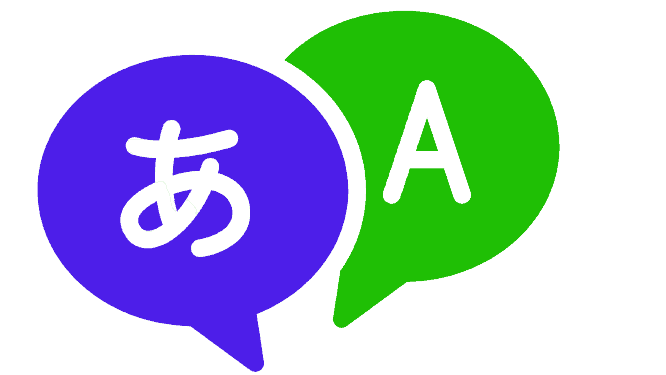Duolingo, a famous app for learning languages, has changed the way that millions of people around the world learn languages. Duolingo uses clever gamification techniques to engage and inspire learners, which is one of the distinguishing characteristics of the platform. Within this gamified environment, leagues play a significant role. In Duolingo, leagues provide a framework for competition where users can show off their development, assess how they stack up against others, and get prizes. Leagues in Duolingo engage and motivate learners by tapping into our inherent desire for competitiveness and accomplishment. Today, we will see what are the leagues in Duolingo & how you can leverage them for your own benefit.
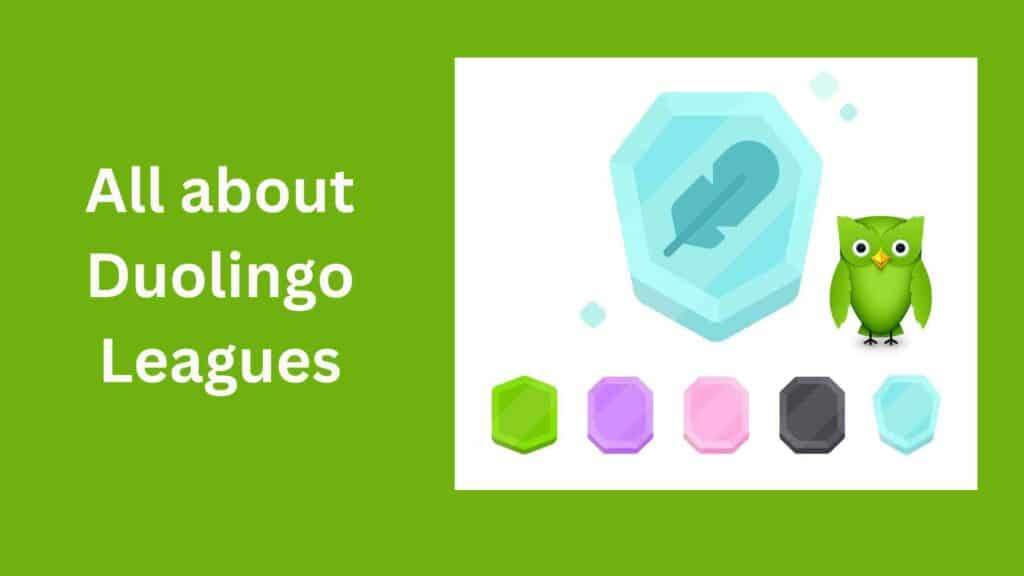
What are Leagues in Duolingo?
In Duolingo, leagues are virtual competitive groups that classify students according to their weekly performance. Users can assess their advancement with others on a platform provided by each league, which represents a distinct skill level. Leagues are here to generate healthy competition, increased motivation, and engagement among language learners. Duolingo hopes to make language learning more entertaining and motivate users to continue their studies by including a competitive aspect.
How leagues enhance motivation and engagement?
- Setting objectives: Leagues provide students specific objectives to work towards. This is to improve their language abilities by the practical goals of moving up the rankings and attaining better league places.
- Friendly competition: Leagues’ competitive atmosphere encourages participants to push themselves and exceed one another. Users who can see their position in comparison to their peers might utilise the leaderboard to develop a feeling of community.
- Leagues bring a gamification component to language learning, making it more interesting and enjoyable. Users are more inclined to put up the time and effort necessary for their studies when they experience a feeling of achievement and success through league progression.
- Leagues facilitate social engagement among members of the Duolingo community. Users can communicate amicably, provide advice, and encourage one another as they learn a language, which helps to increase motivation and a feeling of community.
- Achievement: Moving through the ranks and through the leagues gives users a feeling of accomplishment and recognition for their language learning efforts. This feeling of accomplishment may be quite motivating and inspire students to keep studying.
What are the Different types of leagues in Duolingo?
| League | Placement Range |
|---|---|
| Bronze | Top 20 |
| Silver | Top 15 |
| Gold | Top 10 |
| Sapphire | Top 7 |
| Ruby | Top 7 |
| Emerald | Top 7 |
| Amethyst | Top 7 |
| Pearl | Top 7 |
| Obsidian | Top 5 |
| Diamond | Top 10 |
| Diamond Tournament 1 | Top 10 |
| Diamond Tournament 2 | Top 10 |
| Diamond Tournament Finals | Cannot advance, Top 10 win |
- Bronze League: The majority of Duolingo users begin in the Bronze league. It comprises of new members or players who haven’t yet advanced to higher league divisions. Users compete in the Bronze league against players with comparable skill levels in an effort to earn enough points to keep their place or advance to the next league. Although the Bronze League offers very small benefits, it acts as a stepping stone to higher divisions.
- Silver League: After the Bronze League, there is the Silver League. Users have the chance to move up to the Silver League if they continually do well in the Bronze League. In this league, competitors are a little bit more fierce. The Silver League’s greater prizes and advantages provide more motivation to maintain effort and work for higher positions.
- Gold League: Achieving Gold League status on Duolingo is a big step in a user’s development. The Gold League needs persistent work and determination to advance to. Since novice users are now fighting against more experienced ones, the competition heats up. Duolingo rewards success in the Gold League with enticing perks, which motivates players to keep up their momentum and keep improving their language abilities.
- Sapphire League: You need a high degree of expertise and dedication to join the Sapphire League. Users in this league go up against other very accomplished language learners who have regularly shown their proficiency. The incentives and perks offered by the Sapphire League are a reflection of the users’ successes and serve as extra incentive for further excellent performance.
- Ruby League: The Ruby League is an exclusive group of exemplary language students. Users that make it to this level have shown great language proficiency and perseverance. Users in the Ruby League compete against other top achievers for significant prizes and recognition within the Duolingo community.
- Diamond League: The Diamond League is the highest level of accomplishment in the Duolingo league structure. It is the most elite and difficult league to make it to. Competing in the Diamond League are students who have continuously shown high language proficiency and a great degree of devotion. The Diamond League is very competitive, and its members often act as role models for other Duolingo users.
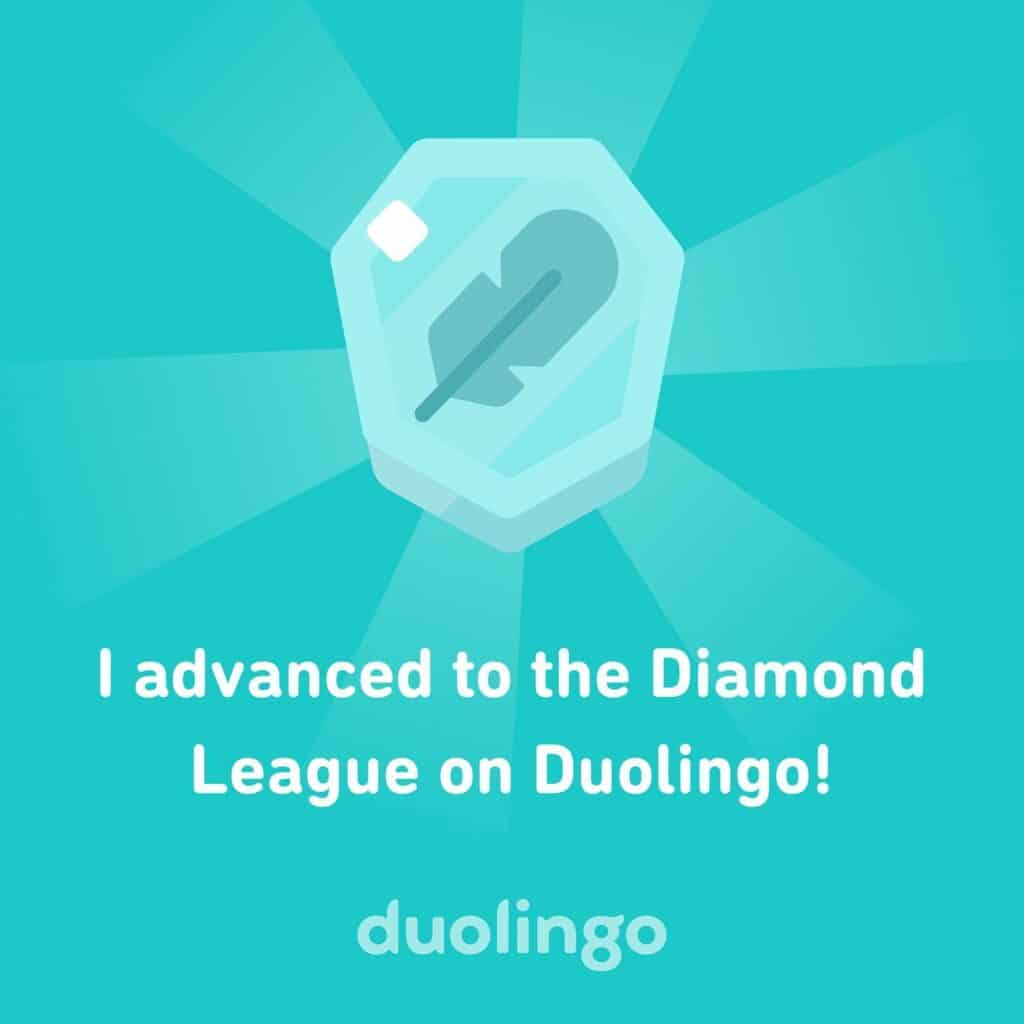
Progression and Promotion within Leagues
In Duolingo, league advancement is based on a weekly score system. Users are first assigned to a league according to their ability level, and depending on how well they play throughout that first week, they either progress, stay in the same league, or be demoted.
Users begin each week with 0 points, and they may earn more by completing classes and using their language abilities. The points gained go towards their final score for the week, which establishes where they stand in the league.
Promotion and demotion criteria:
Promotion: If users reach a certain number of points in their current league, they can push up to a higher league. Depending on factors like the quantity of players and the average scores, the precise amount of points needed for promotion may change. Users that reach the promotion threshold advance to the next league, where they face off against students with more advanced skills.
Demotion: Conversely, users are demoted to a lower league if they fail to meet the minimum point threshold. A user gets demotion to the lower league for the next week if their score is below the threshold for relegation. Demotion gives users the chance to rise back up in status and make progress once again while also ensuring fair competition.
Strategies for advancing through leagues:
- Consistency: To get points and advance through leagues, regular practise is essential. You can use the Duolingo app consistently to earn points and increase your chances of promotion.
- Time management: Setting aside certain time to study a language enables users to regularly finish classes, practise, and gain points. It might be more beneficial to spread out study sessions over the course of the week rather than trying to cram everything into one day.
- Targeted learning: Identifying trouble spots and concentrating on fixing them may boost performance and result in improved grades. To improve their general language ability and boost their prospects of advancement, users may focus on certain classes or abilities.
- Bonus skills and streaks: Keeping up a daily streak and completing bonus skills may increase points and improve final scores. Maintaining a daily streak indicates dedication and consistency, while bonus skills provide extra information beyond the courses.
- Strategically compete: Users may monitor the leaderboard to assess their success and modify their efforts as necessary. Users may get knowledge of the level of competition and be inspired to work more by looking at how other students in their league do.
League Features and Functionality
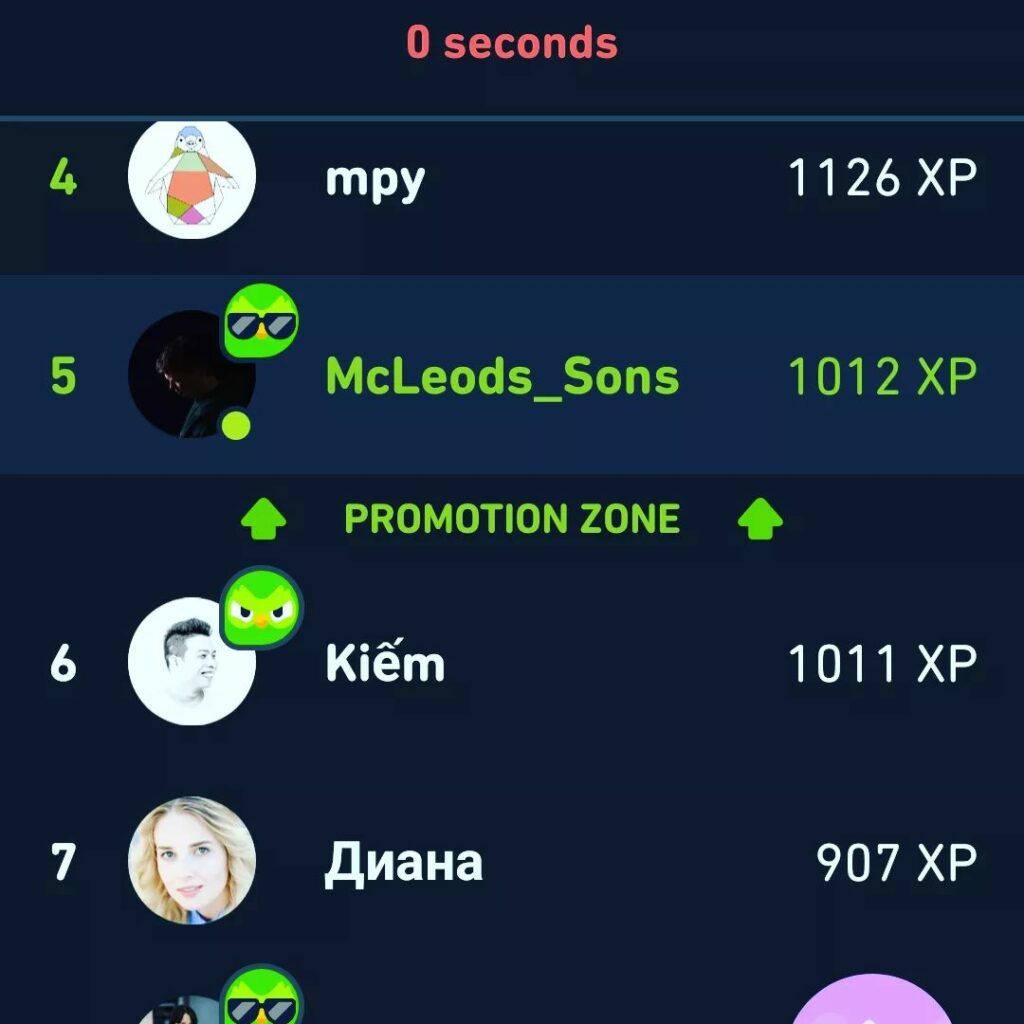
Weekly leaderboard: The ranks of users within a league are shown on a dynamic weekly scoreboard available in Duolingo leagues. The leaderboard encourages competitiveness and motivation by displaying the rankings of students based on their total points for the current week.
The points users gain over the week become the basis for the Duolingo leagues’ scoring system. Points are given for finishing classes, honing skills, and reaching certain objectives. The gathered points go towards a user’s final score, which establishes their position in the league.
Tracking personal progress within leagues:
Tracking of points and progress: Duolingo gives users comprehensive data on their points, development, and league performance. Users may keep an eye on their weekly points, compare themselves to other users, and analyse their development over time.
Duolingo provides historical data and statistics to users to better understand their league-based language learning progress. Users may examine their progress and establish objectives for improvement using data like historical scores, league promotions or demotions, and performance patterns.
Communication and competition among league participants
Community involvement: Duolingo leagues promote a feeling of community by giving students a forum for dialogue and conversation. Users may participate in debates, exchange accomplishments, ask for counsel, and encourage their fellow league players.
Leagues foster friendly rivalry by allowing individuals to compare their achievements with those of their fellow players and seek to surpass them. Competition may inspire learners to take on new challenges and motivate them, which ultimately improves language learning results.
Global community impact: Duolingo has a tool for global community impact in addition to individual competition. A league’s users work together to achieve a common objective, such as accessing new material or supporting language-related projects. This cooperative aspect encourages a feeling of cohesion and common goal among league players. if you are going to take admissions in USA universities that accepts Duolingo, this is quite helpful.
Within Duolingo leagues, the combination of a weekly scoreboard, the scoring system, monitoring of individual progress, and the chance for discussion and rivalry provides a dynamic and interesting experience. These elements improve the whole language learning process by encouraging learners to thrive as well as fostering a feeling of community and shared objectives.
Benefits of Participating in Leagues
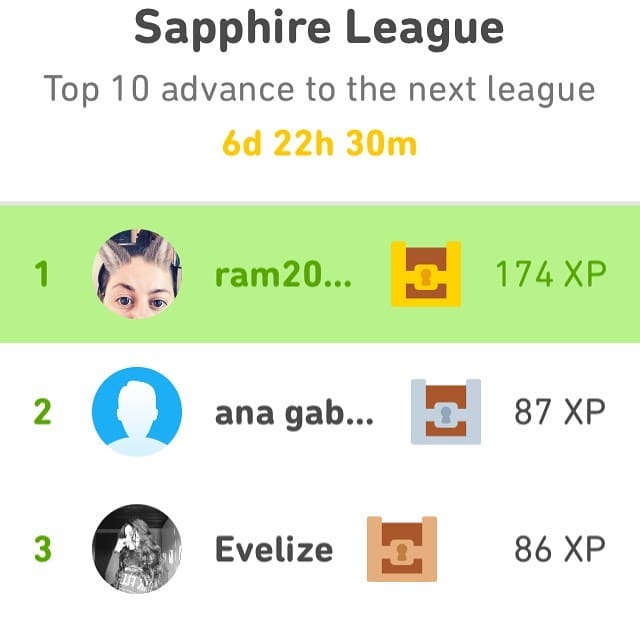
Improved goal-setting and motivation
- Clear goals: Leagues provide users with clear, achievable goals to strive for. The desire to go up the ranks and through the leagues serves as a strong incentive to constantly participate in language learning activities.
- Competitive drive: Leagues’ competitive atmosphere appeals to consumers’ innate desire for success. The incentive that comes from competing with others and striving for better rankings encourages students to put out extra effort to improve their language abilities.
- League participation encourages users to establish particular language learning objectives. (such as achieving a certain point total, joining a certain league, or going above and beyond personal bests). Focus and devotion are improved by using this goal-oriented strategy.
Motivation to continue language study
- Habit formation: By encouraging users to utilise the programme often, Duolingo leagues encourage consistency. A strong motivator to continuously practise and develop is the desire to maintain or raise league standings.
- Leagues help to maintain daily streaks, which serve as a visual depiction of ongoing learning. The dedication to keeping a streak encourages discipline and frequent language practise practises.
- Resets every week: Resets every week in leagues foster a feeling of renewal and provide new chances. Users may assess their success, make new resolutions, and begin each week with newfound vigour and resolve.
Community engagement and peer support
- Feeling of community: Joining leagues enables users to interact with a group of language learners who have similar objectives. An setting that is encouraging and helpful for learning is fostered by a feeling of belonging to a broader community.
- Peer interaction: Users may communicate with other league members via talks, discussions, and sharing of their language-learning experiences. This connection encourages the sharing of information, offers extra learning materials, and builds a feeling of community.
- Accountability and support: Leagues provide a forum for users to ask questions, discuss problems, and get encouragement from others who are going through the same language-learning process. The support and wisdom of others may inspire and provide insightful direction.
Potential Drawbacks and Criticisms of Leagues
Pressure and stress: For certain students who feel the need to consistently achieve at a high level, the competitive nature of leagues may cause pressure and stress. This pressure could be detrimental to learning and result in a bad experience.
Discouragement for slower learners: When comparing themselves to quicker learners in higher leagues, learners who advance at a slower rate or struggle with certain language abilities may feel demotivated or disheartened.
Perceived unfairness in league rankings:
A learner’s total language competency cannot fully reflect by league standings, which are entirely dependent on weekly points. Students who do well in certain subjects but poorly in others can believe they are being treated unjustly.
Timing and availability: Users may encounter an unfair playing field if they join leagues at various times since they may be paired with students who have already racked up more points. As a result, the rankings may seem to be unjust.
Juggling advancement and skill in leagues:
Prioritise quantity over quality: The focus on gaining points and moving up in leagues may unintentionally lead students to place a higher priority on the amount of completed courses than the quality of their language learning. This could lead to a cursory comprehension of the language.
Neglecting certain language skills: Learners may be prone to concentrating only on abilities that result in the accumulation of points, possibly ignoring critical facets of language acquisition like grammar, pronunciation, or cultural awareness.
Limited feedback and evaluation: Leagues often use points to gauge learners’ progress rather than offering in-depth feedback or assessments of particular language abilities. This can make it more difficult for students to pinpoint problems and fix them.
How to turn off or leave leagues in Duolingo?
You can turn off all leagues in Duolingo website (not app). To do so, you need to make your profile private. By default, it is set as public, See this article that explains how you can turn your Duolingo profile private & avoid leagues.
How to enable leagues in Duolingo?
As soon as you complete 10 lessons on any language, you become eligible to complete. You just go to the Leaderboard menu (see screenshot) and toggle it to ON.
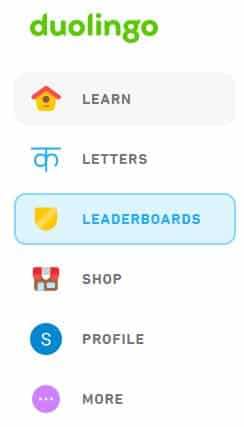
Are the Leagues in Duolingo Real?
No, the leagues on Duolingo aren’t genuine in the sense that there isn’t any actual, live competition between users. They are a gamified element created to enhance the motivation and friendly competitiveness of language learning.
The leagues are determined by weekly point accumulation and ranking among students who are enrolled in the same course. depending on their performance, users are assigned to various leagues where they have the chance to advance to higher leagues or be degraded depending on their weekly scores.
While the leagues provide a scoreboard and rankings, the interactions and competition are dependent on users’ performance over a predetermined period of time rather than occurring instantaneously.
What happens when you finish all the leagues in Duolingo?
There is no clear conclusion or limited list of leagues that users may “finish” in Duolingo. The leagues in Duolingo provide language learners a constant and enjoyable experience while enabling them to compete with others and consistently improve their abilities.
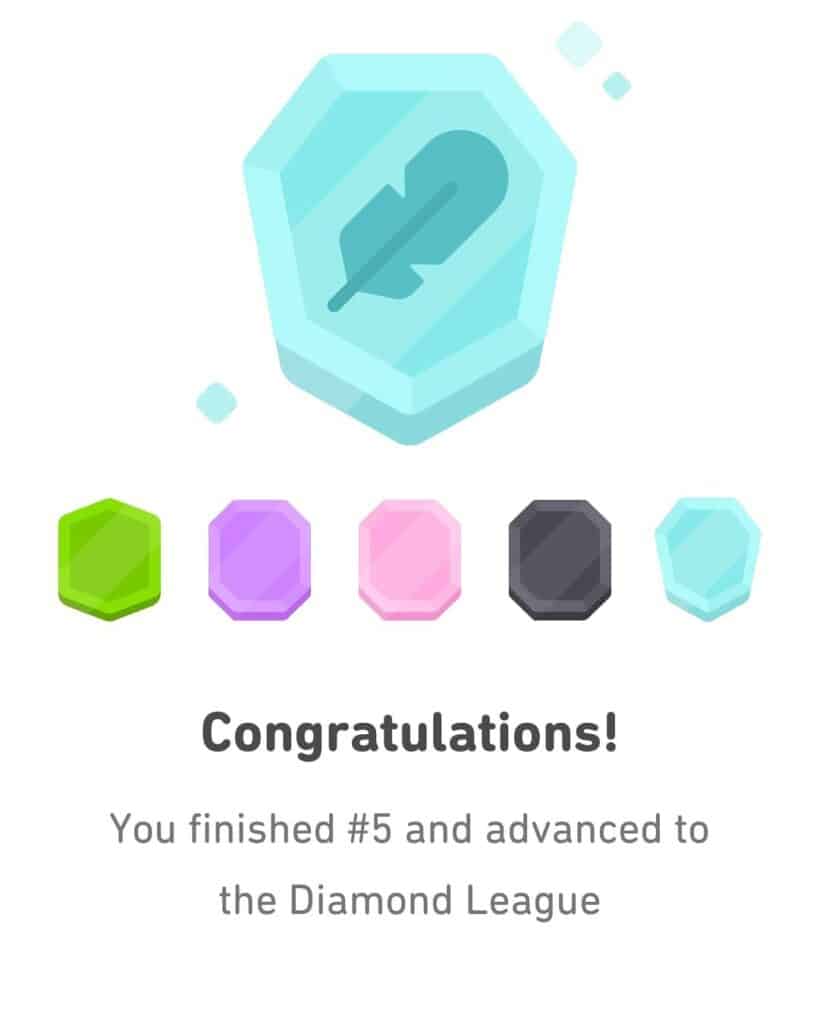
When you reach the top league at the moment, you will probably stay there until further league upgrades or modifications are performed. You may continue to compete against other students in your league to keep up your position or aim for the highest weekly point total.
It’s crucial to keep in mind that Duolingo is continually changing, so more features, tests, or leagues might be added in the future. There may thus still be fresh material or possibilities to interact with in your language learning journey on Duolingo even if you achieve the highest level presently offered.
Conclusion | Different Leagues in Duolingo
In the end, Duolingo leagues motivate language learners. They provide a feeling of competitiveness, goal-setting, and involvement in the community, which may improve the experience of learning a language.
However, the competitive element may deter certain students and the need to balance development and proficiency must be considered. Leagues should be used for inspiration and self-improvement, not rankings. Duolingo leagues promote regularity, goal-setting, and a supportive learning environment.
FAQs
Duolingo leagues let users compete in a fun and encouraging way. Users gain points throughout the week to improve their standings in skill-based leagues.
Leagues on Duolingo operate on a weekly basis. Users begin with no points and add points by finishing classes, honing abilities, and achieving specific goals. The user’s position within their league is determined by the points collected. Depending on how well a user does, they can get promotion to higher levels or degraded to lower leagues.
Yes, you can turn off or leave Duolingo leagues. Generally, you can access the leagues settings through your profile or settings menu and find an option to disable or leave the leagues.
In the sense of live, head-to-head competition, Duolingo leagues are not true contests. They are based on rankings among students in a group and weekly point accumulation. Users can see how they stack up against other players in their league, thanks to the ranking updates.
Duolingo leagues can increase your motivation and feeling of accomplishment, which can help you improve in your language study. Leagues on the Duolingo platform are simply one feature, therefore it’s vital to keep in mind that the main priorities should be continuous practice, conceptual comprehension, and language skill development.
Yes, Duolingo leagues are available for all languages on the Duolingo platform. Whether you’re learning Spanish, French, German, or any other language, you can participate in leagues to add a competitive element to your language learning journey.
Currently, Duolingo leagues do not offer direct rewards or prizes. However, the platform occasionally introduces special events or challenges where users can earn additional perks or bonuses.
The highest league in Duolingo is the Diamond League. The Diamond League represents the top-performing users based on their weekly points.
On the other hand, the lowest league in Duolingo is typically the Bronze League. The Bronze League consists of users who have recently joined Duolingo or have accumulated fewer points compared to higher leagues.

Meet Bill, a French language teacher and blogger who specializes in testing various language learning apps. He has been teaching French for nearly 4 decades and holds a Bachelor’s degree from Manhattanville College. With a passion for technology and how it can enhance language learning, Bill has spent years testing and reviewing different language learning platforms. His blog provides valuable insights into the pros and cons of each app, as well as tips for language learners of all levels.
